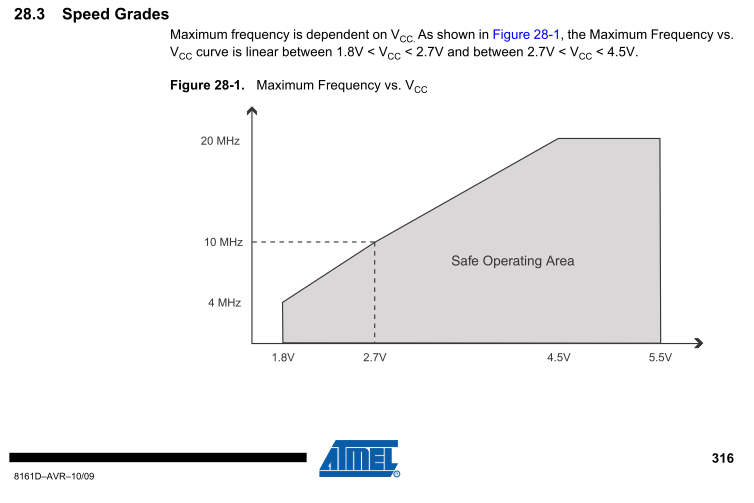low voltage temperature sensor in tht package
-
hmm, that is an idea :) I have a spare socket available
-
But humidity sensor temperature values are not very accurate, often they messure 1-3°C more then the DS18S20.
From a datasheet of a humidity sensor:
"Please note: The temperature reading will display the temperature of the heated sensor element and not ambient temperature." They use the temperature mesurement for the calculation of the humidity value.
I search for a low volt temperature sensor but it is very difficult to find such a sensor. The ds620 from maxim shows very good but it's a smd package...@fishermans which humidity sensor is that ?
Si7021 etc have a heater in case it staid in high humidity for a long time and it's showing wrong humidity value, in that case you can start heater to cancel the bias faster. But in normal use you don't need heater and temperature measurement is then very accurate. -
In the last days I have read some discussions about BMP280/BME280 and there are some notes about this problem.
-
@rozpruwacz, have you considered a simple and cheap thermistor? If you need temperature measurement and nothing else then a thermistor in series with a resistor (connected to an Arduino output pin) works at any voltage and is very fast - means Arduino will spend more time sleeping. It will be the Arduino itself limiting the lower threshold of you voltage supply.
If you burn a 1MHz internal oscillator boot-loader you can use your rechargeable or non-rechargeable batteries down to 1.8V as you can see in the ATMega328P datasheet:
It may require more investigation however - I read on this forum that MySensors gives random faults when Arduino is running @ 1MHz internal oscillator!?
It would be useful if someone could validate / invalidate the issue or share experience about running @ 1MHz internal oscillator ... -
@rozpruwacz, have you considered a simple and cheap thermistor? If you need temperature measurement and nothing else then a thermistor in series with a resistor (connected to an Arduino output pin) works at any voltage and is very fast - means Arduino will spend more time sleeping. It will be the Arduino itself limiting the lower threshold of you voltage supply.
If you burn a 1MHz internal oscillator boot-loader you can use your rechargeable or non-rechargeable batteries down to 1.8V as you can see in the ATMega328P datasheet:
It may require more investigation however - I read on this forum that MySensors gives random faults when Arduino is running @ 1MHz internal oscillator!?
It would be useful if someone could validate / invalidate the issue or share experience about running @ 1MHz internal oscillator ...@iahim67 said in low voltage temperature sensor in tht package:
It would be useful if someone could validate / invalidate the issue or share experience about running @ 1MHz internal oscillator ...
No it doesn't generate random errors, at least not with nrf24 and basic sensors like doors/windows/temperature etc with no precise timing requirements.
-
@rozpruwacz, have you considered a simple and cheap thermistor? If you need temperature measurement and nothing else then a thermistor in series with a resistor (connected to an Arduino output pin) works at any voltage and is very fast - means Arduino will spend more time sleeping. It will be the Arduino itself limiting the lower threshold of you voltage supply.
If you burn a 1MHz internal oscillator boot-loader you can use your rechargeable or non-rechargeable batteries down to 1.8V as you can see in the ATMega328P datasheet:
It may require more investigation however - I read on this forum that MySensors gives random faults when Arduino is running @ 1MHz internal oscillator!?
It would be useful if someone could validate / invalidate the issue or share experience about running @ 1MHz internal oscillator ...@iahim67 yes, i thinked of that. But im planning to put the sensor on 1-2m cable lenght from the node. So i'm worried about the noise. Any shielding on the cable will make it thicker and i want to keep it thin.
-
@Nca78 - good to know, thanks!
@rozpruwacz - having a 4K7 thermistor at the end of a few meters of cable is OK ... unless the cable is an inch away from a power motor, fluorescent light, etc. Does not matter much what type of cable you use if you keep it short (a couple of meters).
Don't use large value thermistors like 1Meg.
Try to use twisted cable to connect the thermistor to Arduino if shielded is not an option, twisted cables can reduce some type of interference and noise.
These things may help you ... hopefully:smile: -
@rozpruwacz - one more thing you can do is to place a small ceramic capacitor (like 1nF to 10nF ... or just experiment with other values) in parallel to the thermistor, that will also filter noise.
